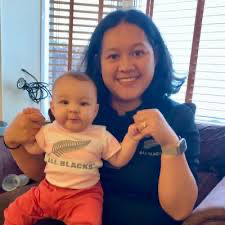Don't wanna be here? Send us removal request.
Text
The Life and Legacy of Sue Maroroa Jones
Sue Maroroa Jones was a chess player, rugby player, and mother who left a lasting legacy on the New Zealand and international chess communities. She was born in Auckland, New Zealand, in 1991 to a Cook Islander father and Chinese-Malaysian mother. She began playing chess at the age of 10, and quickly showed promise as a young player. She represented New Zealand at the World Under-14 Girls Championship in France in 2005 and the World Under-18 Girls in Vietnam in 2008. In 2006, she won the New Zealand Women's Championship, and in 2008, she became the first female player to win the New Zealand Junior Chess Championship.

Sue was a natural athlete, and she also excelled at rugby. She played as a backrower for Sheffield Ladies RUFC for five seasons before the birth of her first child, Samaria. She was a determined and fierce competitor, and she was always willing to help out her teammates. She was a beloved member of the Sheffield RUFC community, and she will be greatly missed by all who knew her.

Sue's love of chess continued into adulthood, and she represented New Zealand in five Olympiads (2002-2012) and England once, in 2014. She also achieved the title of Woman International Master in 2009. Sue was an intuitive player, and she excelled at attack, tactics, and fast time controls. She was a fierce competitor, and she always gave her all in every game.

Sue was a dedicated mother, and she loved spending time with her children. She was a patient and loving parent, and she always put her children first. She was a role model for young girls everywhere, and she showed them that anything is possible if you set your mind to it.

Sue Maroroa Jones was a talented chess player, a fierce competitor, and a devoted mother. She left a lasting legacy on the New Zealand and international chess communities, and she will be deeply missed by all who knew her.
0 notes
Text
Chess: A Sport or Not?
For centuries, chess has been played around the world, and there has been an ongoing debate over whether it should be considered a sport. While some argue that chess is purely a game of the mind, others maintain that it requires physical and mental endurance. In this blog post, we'll delve into the argument that chess should indeed be considered a sport, drawing on Bobby Fischer's book "Teaching Chess" and other sources.

According to the International Olympic Committee, a sport must have "an element of competition," "a physical element," and "a technical element." Chess meets all of these criteria, as it involves competition, requires physical endurance, and has technical elements such as opening and endgame strategies.

While some may argue that chess is not a sport because it lacks physical contact and does not involve physical exertion, physical exertion doesn't necessarily require contact or strenuous movement. As Fischer stated, "mental exertion is the equivalent of physical exertion." Furthermore, many other sports such as archery and shooting do not involve physical contact or strenuous movement but are still considered sports.

In conclusion, chess should be classified as a sport due to its physical and mental demands, as well as its shared qualities with traditional sports. Fischer's book "Teaching Chess" highlights the importance of physical fitness and mental agility in playing chess, and other sources support the classification of chess as a sport. Chess players must maintain their physical and mental fitness, which requires discipline and endurance, similar to athletes in other sports. Therefore, we should consider chess as a sport, and it should be given the recognition and respect that it deserves.
1 note
·
View note